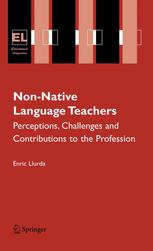

Most ebook files are in PDF format, so you can easily read them using various software such as Foxit Reader or directly on the Google Chrome browser.
Some ebook files are released by publishers in other formats such as .awz, .mobi, .epub, .fb2, etc. You may need to install specific software to read these formats on mobile/PC, such as Calibre.
Please read the tutorial at this link: https://ebookbell.com/faq
We offer FREE conversion to the popular formats you request; however, this may take some time. Therefore, right after payment, please email us, and we will try to provide the service as quickly as possible.
For some exceptional file formats or broken links (if any), please refrain from opening any disputes. Instead, email us first, and we will try to assist within a maximum of 6 hours.
EbookBell Team

4.7
76 reviewsNon-native language teachers have often been viewed as an unavoidable fate of the profession, rather than an asset worth exploring and investigating. Now that non-natives are increasingly found teaching languages, and particularly English, both in ESL and EFL contexts, the identification of their specific contributions and their main strengths has become more relevant than ever.
As a result, there has recently been a surge of interest in the role of non-native teachers but little empirical research has been published so far. This volume is particularly rich in providing different approaches to the study of non-native teachers: NNS teachers as seen by students, teachers, graduate supervisors, and by themselves. It also contributes little explored perspectives, like classroom discourse analysis, or a social-psychological framework to discuss conceptions of NNS teachers.